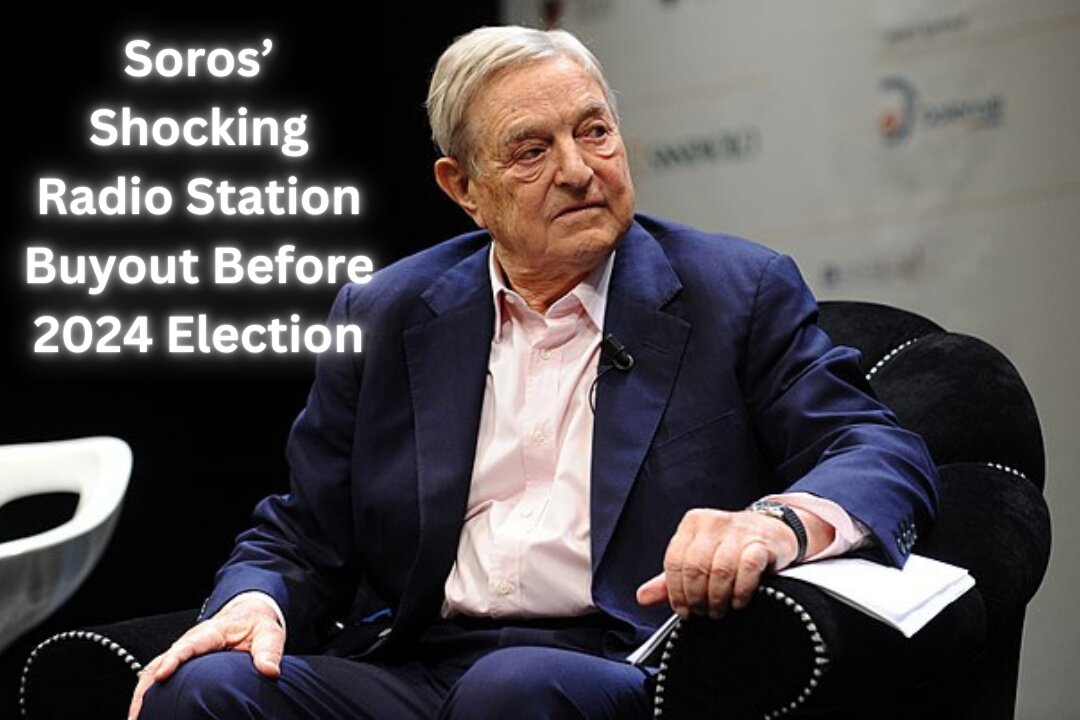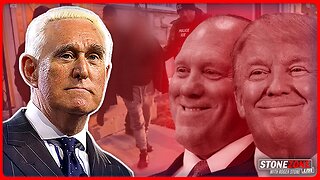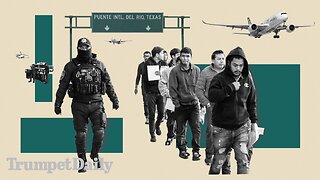Premium Only Content

Is George Soros Preparing a Media Monopoly to Sway the 2024 Election?
The mainstream media continues to claim that the 2024 presidential race is already decided, asserting that Trump has lost to Kamala Harris, often referred to in such terms due to her connection to Willie Brown. But if this is true, why is left-wing billionaire George Soros making moves to acquire over 220 radio stations, including the Audacy network, which reaches 165 million Americans, before the election?
More concerning is why the Federal Communications Commission (FCC) is allowing this acquisition. Last week, FCC Commissioner Brendan Carr raised the alarm during a House Oversight Committee hearing, calling the move a violation of the FCC’s fundamental rules against monopolies. The New York Post first reported on the Soros deal, which would give him control of 40 media markets once finalized.
Soros, a prominent left-wing megadonor, has a long history of funding Democratic candidates and supporting far-left social causes. His wealth comes from currency speculation, having played roles in significant financial crises, such as the collapse of the British pound in 1992 and economic instability in Thailand, Malaysia, Russia, and Indonesia in the late 1990s. Domestically, Soros has funded movements like “defund the police” and supported initiatives around transgender healthcare for minors. He has also been linked to backing efforts that facilitate mass migration into the U.S.
Commissioner Carr has been vocal against recent actions by the FCC, such as the Biden administration’s recent decision to pull grants from Elon Musk's StarLink service, reallocating them to telecom companies with left-leaning affiliations. Carr emphasized that the FCC’s decision-making process regarding the Soros deal deviates from its usual procedures, suggesting a deliberate shortcut.
The FCC, created in 1934 under President Franklin D. Roosevelt to regulate radio and its opposition voices, has five commissioners. The vote on Soros’ deal passed 3-2, with the three Democrat-appointed commissioners in favor and the two Republicans opposing.
With over 15,000 radio stations in the U.S. and 91% of Americans still tuning in, radio remains the country's most widely used media platform. As the 2024 presidential election approaches, this unprecedented media consolidation raises serious questions about influence and control leading up to the November 5 showdown between Donald Trump and Kamala Harris.
-
 3:59
3:59
Conspiracy Chronicle
1 month agoRadioactive Shipment Disappears in New Jersey—Are Drones on the Hunt?
1341 -
 2:50:20
2:50:20
DLDAfterDark
5 hours ago $2.66 earnedDLD Live! Are They Planning an Attack?? The "cute winter boots" Trend & What it Means!
30.7K3 -
 55:26
55:26
Flyover Conservatives
1 day agoFrom Conspiracy Theory to Proven Fact: Breaking Free from the American Corporation - Ann Vandersteel | FOC Show
44.2K5 -
 1:48:32
1:48:32
Danny Polishchuk
11 hours agoThe Funniest Call In Show On Earth - Live From New York City's Best Comedy Club
42.2K -
 1:01:12
1:01:12
The StoneZONE with Roger Stone
7 hours agoTrump Authorizes ICE Raids That Save Women and Children | The StoneZONE w/ Roger Stone
45.2K6 -
 1:39:36
1:39:36
Patriots With Grit
5 hours agoThe Evil Underbelly of Healthcare | Scott Schara
27.9K4 -
 1:30:54
1:30:54
megimu32
10 hours agoON THE SUBJECT: Music fun, Marvel Madness, and HOTSEATTODD!
34.6K1 -
 7:24:37
7:24:37
Dr Disrespect
15 hours ago🔴LIVE - DR DISRESPECT - WARZONE - NEW SEASON 2 UPDATE
184K29 -
 58:55
58:55
Candace Show Podcast
11 hours agoBACKSTABBED: Justin Baldoni’s Leaked Voicemail, RFK Jr’s Betrayal | Candace Ep 140
155K291 -
 54:34
54:34
LFA TV
15 hours agoThe Deportation Mandate | TRUMPET DAILY 1.28.25 7pm
42.2K8